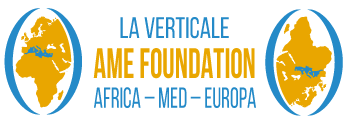The “Sectoral Verticals” are international working groups made up of people from sub-Saharan Africa, Eastern and Southern Mediterranean and Europe, bringing together entrepreneurs, experts, political actors and representatives of NGOs, which are set up in each of the key areas of regional integration: Health, Sustainable cities, Vocational training, Water and sanitation, Creation and financing of SMEs, Dialogue and cultural initiatives, Renewable energies, Digitalization, Logistics and connectivity, Development rural and food security (…)
They aim to:
– generate consensus, through shared diagnoses and recommendations in order to remove obstacles to regional economic integration;
– bring out concrete and inclusive field projects, based on the needs of populations and territories.
Special Secure Economic Zones
The project aims to take stock of the SEZs in Africa, and to promote a new type of zone with the following characteristics:
– secure for goods and people, access to energy and the Internet, and in terms of land;
– being the subject of a strong partnership with Europeans, from conception to Euro-African co-production, including financing;
– medium or high added value;
– intended for local, national and international African markets and not only for exports such as Chinese SEZs in Africa;
– valuing externalities;
– mobilizing public spending that is not fiscal (exemptions) but budgetary (infrastructure, training and research) so that the SSEZs plays a training role for local and national ecosystems.
The idea is not to offer an alternative to Chinese SEZs. It is to be inspired by it, so that Europeans in turn propose a comprehensive strategy to the Africans, complementing the Chinese offer in the direction of greater added value and a greater contribution to development.
Phases 1 (diagnosis of what already exists) and 2 (proposals for new SSEZs) will be completed at the end of May 2021. Phase 3 of the study, which consists of confronting the points of view of public authorities and entrepreneurs, investors and experts in the issue, will call on the European, Mediterranean and African networks of La Verticale AME Foundation.
Industrialization. A Euro-African automotive industry
The African Association of Automotive Manufacturers (AAAM, https://aaamafrica.com/) is collaborating with La Verticale AME Foundation to give a more important place to the automotive sector in the negotiations between Europe and Africa, in the prospect of the EU-AU Summit.
This German initiative is open: Ford took an interest in the initiative, Czech and French manufacturers were approached, Japanese manufacturers: Isuzu, Toyota and Nissan. To significantly increase African production, it is necessary:
– to move from a few isolated national producers (Morocco, Egypt, Nigeria, South Africa, etc.) to more integrated production and trade at the level of the Regional Economic Communities (RECs), then at the level of the whole of Africa;
– move to greater African added value, in a strategy of increasing the value chain.
The AAAM initiative has four advantages:
(i) this sector is one of the rare “industrializing industries”, with millions of jobs in Europe and in Africa tomorrow;
(ii) it is a field of energy and digital transitions;
(iii) it influences the logistical and territorial success of Africa, to develop sustainable metropolises as well as for rural development;
(iv) AAAM can be a coordinated European ambition towards Africa.
The opportunity for Europeans is strategic. At European level, a comprehensive strategic agreement from the main European manufacturers and governments is still missing.
Sustainable cities
– The contextualization of the problems requires considering each city as a particular case but which must nevertheless respect common rules to be defined
– Land issue: explore and test the solution of long-term emphyteutic leases and the municipalization of soils
– New methods of city production: an urban diagnosis with the stakeholders concerned
– Employment and urban attractiveness: count the existing industrial zones, clusters, technopoles and promote specialized and secure economic zones; identify the development potential of large productive districts
– Local empowerment or African empowerment: disseminate good civic practices in cities that improve daily life, in particular in terms of short circuits (water, energy, waste treatment) and their link with the autonomous management of neighborhoods
– Vernacular culture and technological innovation in the service of improving everyday life for the greatest number of people
– Efficient urban innovations of small dimensions, technical packages likely to facilitate access to essential services and ensure sustainable urban development
– (re) discovery and popularization of ancestral techniques and know-how
– Greening in Africa and the global issue of carbon sequestration.
SME development and financing
– Create the business climate observatory
– Create the observatory of central bank monetary policies that have an impact on the business environment and the attractiveness of FDI
– Facilitate access to financing for SMEs
– Promote co-production
– Create Specialized and Secure Economic Zones (ZESS)
– Promote the social and solidarity economy (SSE)
Energy transition
La Verticale AME supports the RenewAfrica Initiative (https://www.res4africa.org/renewafrica-initiative/), a European initiative aimed to accelerate Africa’s sustainable energy transition. It wants to offer technical assistance, capacity building, policy dialogue, financing services and financial risk reduction. It brings together 24 European players from 9 countries, from the financial, industrial (for France: EDF and Schneider), institutional and development sectors, who signed a declaration of intent in 2019. RenewAfrica tries to coordinate currently disparate European actions, which do not cover all forms of risk-investing, nor all phases of investment.
RenewAfrica approached La Verticale AME Foundation. In this context, the project aims to raise the demands of the field and to better involve African actors, below national decision-makers. This approach is essential to make the link between the short-term needs of populations and local territories, driven by the demand for access to electricity and employment, and the long-term sustainability requirements of RenewAfrica.
Two tools are available for this purpose: local Territorial Energy Diagnostics; and Renewable Energy Exhibition and Innovation Centers for local communities.

